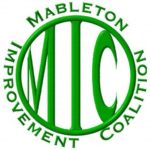[vc_row][vc_column][title type=”h2″ align=”center” color=”#1024a5″]Who Controls The Roads?[/title][/vc_column][/vc_row][vc_row][vc_column][vc_single_image image=”4451″ img_size=”large” alignment=”center” onclick=”custom_link” img_link_target=”_blank” link=”https://www.mableton.org/wp-content/uploads/2020/09/Key-Facts-of-Smyrna-Annexation-Study.docx”][/vc_column][/vc_row][vc_row][vc_column][vc_separator][vc_column_text]
By: Joshua F. Jones, Esq
Winter Capriola Zenner, LLC Community Associations Institute – Georgia Chapter Mableton Improvement Coalition's HOA Network
[/vc_column_text][/vc_column][/vc_row][vc_row][vc_column][vc_column_text]
The factual determination of whether neighborhood roads are public or private has an immense impact on the association’s rights and obligations. Specifically, the association’s maintenance responsibility and enforcement rights are contingent on who controls the roads. Therefore, it is paramount that boards invest the time and effort to determine whether one’s community roads are public or private.
There are many methods you can use to determine whether your community’s roads are public or private. Often times, the answer requires a very brief investigation. Of course, sometimes, it may be necessary to consult with your association’s legal counsel or another real estate expert.
Gated Community
If your community is a gated community, it is reasonably safe to assume that the roads within your community are private. In general, community associations and private citizens cannot restrict access to public roads; therefore, all roads in a gated community must be private roads. If your community; however, does not restrict or limit vehicular access, you will need to continue your investigation.
Conveyance of Common Areas
During the turnover period for your community, the developer or builder will usually convey the common areas within the community to the association. In cases where the roads are private, the roads will be part of the conveyance. Alternatively, if the roads are public, the conveyance will not include the roads. To determine what property was conveyed to your association, you should reference your county’s land records to locate any deeds between the developer or builder and the association. To research property records, you can visit your county’s real estate records room located at the superior courthouse. or search online on the third-party site Georgia Superior Court Clerk’s Cooperative Authority (GSCCCA). If you cannot locate any deeds or if your association does not have any common areas, you should continue your investigation by referencing your community’s subdivision plat. If your association does not have a copy of your community’s subdivision plat, you may be able to locate a copy in the county land records where your community is located.
Subdivision Plat
A subdivision plat is intended to provide an accurate description of a section of land, including the boundaries and location of individual lots, roads, easements and other pertinent information. Many subdivision plats, but not all, contain notes or declarations, which may specifically state or declare that the roads within the community are private or public. Additionally, the roads on the subdivision plat may be labeled as private or right-of-way. Unless otherwise noted on the subdivision plat, a right-of-way label means that the roads are public. If your subdivision plat is silent as to the status of the roads and you are unable to make a determination using any of the methods above, I recommend you consult your association’s legal counsel.
Maintenance Responsibility
The association’s governing documents (i.e., Declaration/CCRs) outline the maintenance responsibilities for the association and homeowner. In almost all cases, the association is responsible to maintain the association’s common areas to include the private roads located within the community. Typical maintenance responsibilities include filing potholes, removing debris, and paving. On the other hand, if the community’s roads are public, the association bears no maintenance responsibility. Generally, the local municipalities (e.g., city or county) or their agents maintain all public roads.
While an association may not be responsible for specific maintenance obligations in connection to a public road, the board should notify the local municipality responsible for said maintenance of any safety issues, road damage, or any other issue that requires attention.
Enforcement
For communities with private roads, the board has very broad authority to regulate the use of the roads. Generally, the association’s governing documents will contain use restrictions related to vehicle parking and the association’s enforcement rights. However, the board may also adopt rules and regulations which further address street parking, speed limits, vehicle storage, towing/booting, and other issues pertaining to the roads.
When it comes to public roads, there is a common misconception that the association does not have enforcement rights. While it is true that the association’s authority is not as broad and the association may not tow or boot vehicles, the association may still impose fines or other sanctions pursuant to their specific enforcement provisions contained in their governing documents.
With the knowledge that your community’s roads are public or private, you will be in a better position to perform your maintenance and enforcement obligations.[/vc_column_text][/vc_column][/vc_row][vc_row][vc_column][/vc_column][/vc_row][vc_row][vc_column][/vc_column][/vc_row]
